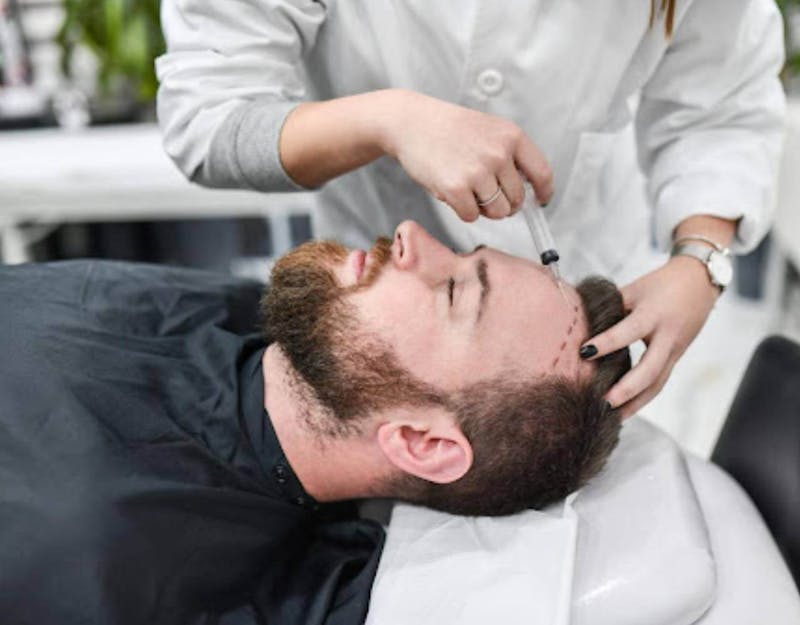
Hair loss can be a serious problem that affects women of all ages, genders, and lifestyles. If you are balding or experiencing thinning hair, you get concerned about how best to treat the issue. Hair transplant procedures are a popular option for those who want to hide their thinning hair or complete baldness. Arguably the most significant concern for those considering hair transplant surgery is determining whether or not their hair loss meets the qualifications required to undergo medical treatment.
If you are considering a hair transplant procedure, then there are several things that you should consider before making your decision. This article will discuss whether or not hair transplants are suitable for you.
Age
Hair loss tends to occur more frequently as you get older— about 50% of women experience some degree of hair loss by the time they’re 50.
If you’re experiencing hair loss and are younger than 25, it may be good to speak with your primary care physician about your concerns. They’ll be able to rule out any underlying medical conditions causing your thinning (for example, thyroid problems).
Hair Loss Pattern
You need to know your hair loss pattern. The most common type is androgenetic alopecia (male and female pattern baldness). A receding hairline characterizes it at the temples and the gradual disappearance of hair from the top of the head. Other types include:
- Traction alopecia gets caused by tight hairstyles, like ponytails or cornrows, that pull on your hair.
- Alopecia areata causes an autoimmune reaction where the body’s immune system attacks its cells. It results in patchy baldness.
- Scarring alopecia the inflammation destroys follicles leading to scarring that prevents further growth of new hairs.
If you are not sure which pattern is causing your hair loss, consult with a doctor. The doctor will determine whether a transplant procedure could be right for you.
Scalp Laxity
Scalp laxity is essential for a successful hair transplant. It refers to the ability of the scalp skin to move around easily. A tight scalp can make donor harvesting difficult and have higher graft transaction rates. More grafts will damage during extraction and will not survive transplantation.
You can test your scalp laxity by pulling on the skin on your forehead or temple with one hand. Push backward on the crown or back of your head with the other hand if there is significant movement (one-to-two inches) between these two actions. Then, you have good scalp laxity and are likely a good candidate for hair transplant surgery.
Be in Good Health for a Hair Transplant
Evaluating medical history is one of the prerequisites for evaluating your candidacy for a hair transplant. Any underlying medical condition that can affect the healing process and surgical outcome should undergo evaluation.
The following are some of the conditions that are contraindications:
- Scalp problems. If you have any conditions or diseases on your scalp, this may not be a good time to undergo hair transplant surgery.
- Blood clotting problem. The use of blood thinners such as aspirin and warfarin (Coumadin) is wrong in patients who need hair restoration surgery due to increased bleeding risk during and after the procedure.
- Bleeding problems. Patients with bleeding disorders like hemophilia should avoid having a hair transplant due to the high risks associated with bleeding during and post-surgery.
- Autoimmune disorders. People who have autoimmune diseases such as lupus, rheumatoid arthritis, vitiligo, etc., usually do not make good candidates for hair restoration procedures. Their immune system might reject the implanted follicles or cause permanent scalp inflammation. It will cause further damage to natural follicles leading to more pronounced baldness over time.
Post Procedural Care
The best candidates for hair transplant procedures commit to post-procedure care. You need to follow your doctor’s instructions to ensure optimal results and reduce risk.
You need to:
- Avoid smoking or excessive alcohol consumption before surgery.
- Take steps to manage stress before and after surgery, such as exercise and other healthy lifestyle activities.
- Take prescribed medications in a timely matter as directed by your doctor.
Learn More About Hair Transplants
If you’re interested in hair transplants, gather as much information as possible and speak with a specialist. There are a few pros and cons to consider, but once you have enough knowledge and decide to move forward, you should be well on your way to a successful procedure.
But remember, hair restoration is an investment—your new look isn’t going to be cheap. Ensure that you’re in the right financial position for such a big purchase before moving forward. Contact us and let’s give you the right advice for hair transplantation.

